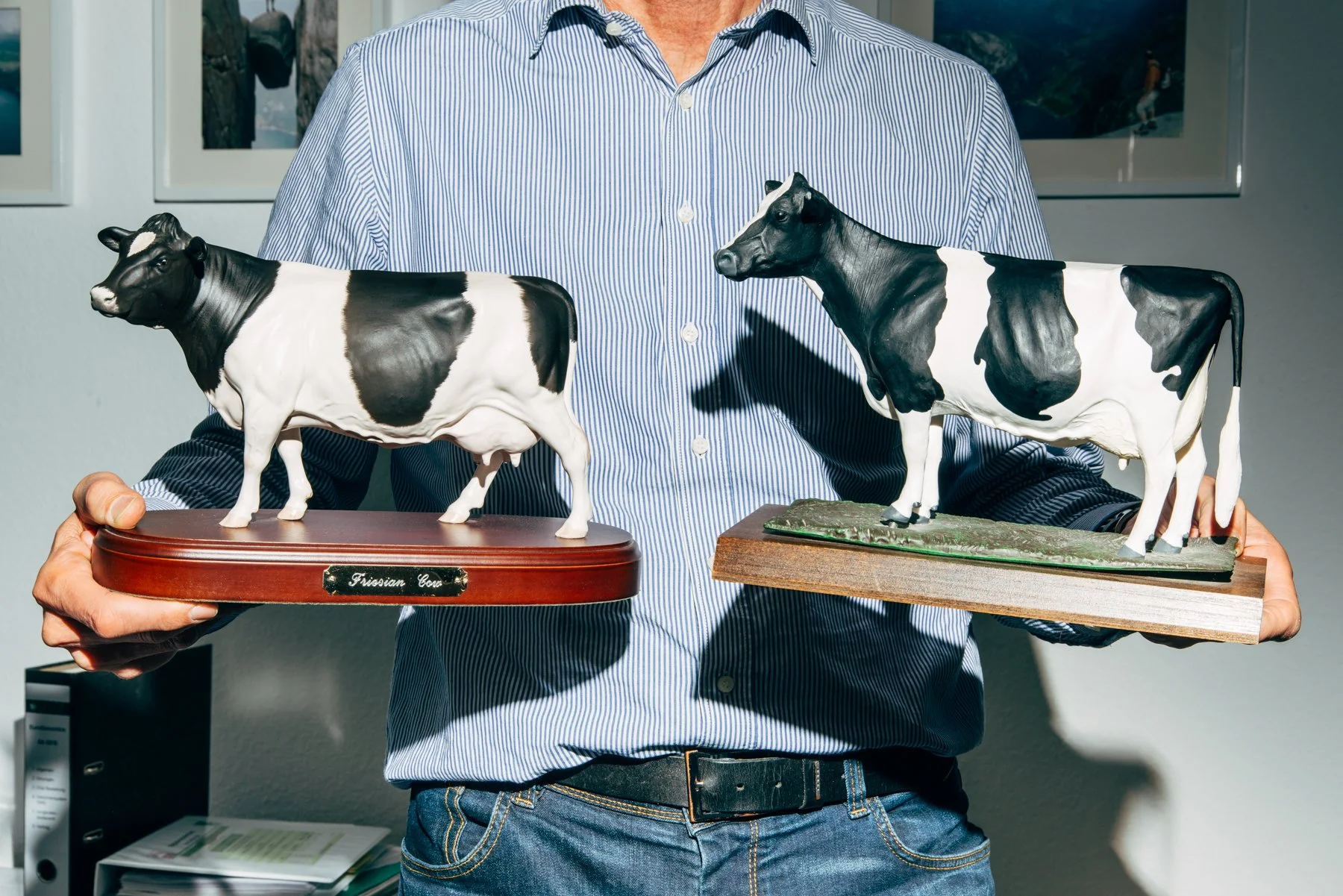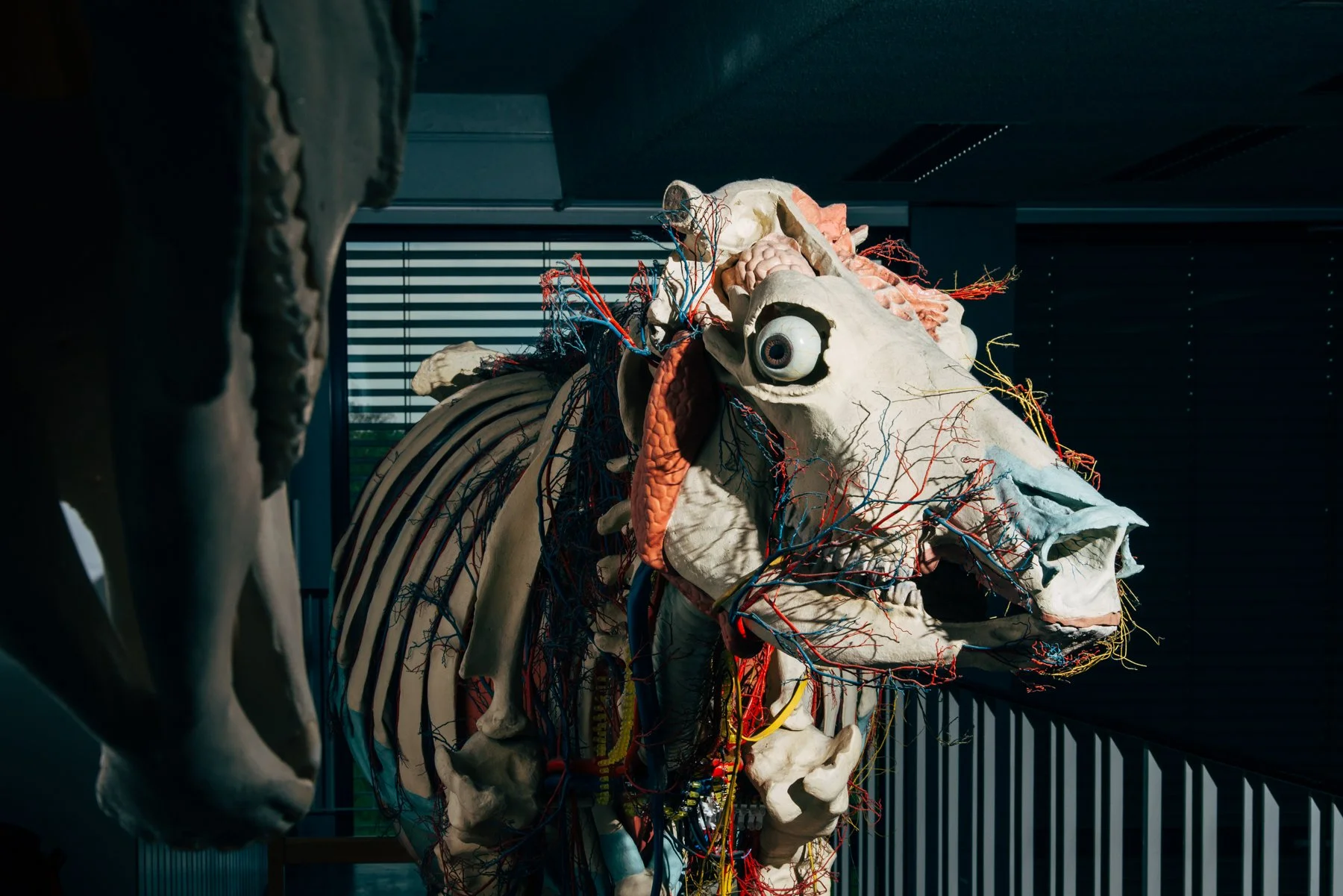Based in Berlin, Nikita Teryoshin (*1986) was raised in St. Petersburg, Russia and then in 2000 moved with his family to Dortmund, Germany, where he also earned a Bachelor of Arts in Photography. He describes his genres as street, documentary, and everyday horror.
Teryoshin graduated with his first long-term project Hornless Heritage (2014 – 2019) focused on the matrix-like world of the German dairy cow industry.
Between 2016 and 2021, he visited 15 Defence Fairs in 14 countries on 5 continents for insight into the global arms trade for his story, ‘Nothing Personal – the back-office of war’. The project has been exhibited in Strasbourg, France, Biel, and Geneva in Switzerland and won the German VG Bild-Kunst research grant in 2018, PH Museum Grant 2019, Miami Street Photography Festival 2019 first prize in Series, Kolga Tbilisi in 2020 first prize in Documentary and the World Press Photo 2020 first prize in the category Contemporary Issues and has been nominated for the picture of the year.
In September 2019, he participated in the World Press Photo Foundation’s Joop Swart Masterclass, and started the series ‘I’ve never been to Russia’.
Teryoshin works as freelance photographer for publications such as SZ-Magazin, ZEITMagazin, 11Freunde, Der Spiegel and Stern. His personal projects have been published in VICE, LFI, Le Monde, Vrij Nederland, ZEIT Magazin, GUP Magazine, WIRED, and Süddeutsche Zeitung.
In 2020, he started pupupublishing for small editions of photobooks and zines, with two publications so far: Carte des Vins and Backyard Diaries.
PORTFOLIOS
Nothing personal - the back office of war (2016 - 2021)
Every day on the news we are watching pictures of war and destruction, and the expenditure on armaments is setting new records year after year. Nothing Personal shows the back office of war, which is the complete opposite of a battlefield: an oversized playground for adults with wine, finger food, and shiny weapons. Dead bodies here are mannequins or pixels on screens of a huge number of simulators. Bazookas and machine guns are plugged into flat screens and war action is staged in an artificial environment in front of a tribune full of high-ranked guests, ministers, heads of states, generals, and traders.
The pictures of this project that is still ongoing have been taken so far at 14 defence exhibitions between 2016 and 2020 in Europe, Africa, Asia, North and South America (Poland, Belarus, South Korea, Germany, France, South Africa, China, United Arab Emirates, USA, Peru, Russia, Vietnam, and India).
Hornless Heritage (2014 - 2017)
German dairy cow in the age of its technical reproducibility
Just like its country’s famous automotive brands, German dairy breeds - known as ‘turbo cows’ - are very popular all over the world because of their performance and reliability. Thanks to computer technologies in the last decades, German scientists have compiled millions of breeding values together along with knowledge about genomic code, which has allowed them to design an animal with up to four times higher milk output and even breed out undesirable traits such as the animal’s horns. For a cow, evolutionary horns mean protection and autonomy. They are even important for the milk performance and overall condition of the animal. However, within the setting of huge, fully automated farms populated by hundreds of cows, horns are viewed as too dangerous. After decades of painful dehorning of cattle with a branding iron, scientists now predict that cows in the future could be rendered hornless by birth and retain the same peak milk performance due to the innovations of German cattle breeders. In an age where technological advancement and financial gains have created a culture of perfectionism, what will be the role for the cow itself as a living being in the years to come?
Space time discountinuum (2008- present)
A distant diary
I’ve never been to Russia (2019)
I left St. Petersburg and Russia nearly 20 years ago to live abroad. I never stopped being interested in Russian culture, politics, and society. In 2019, I visited Moscow - the capital of Russia for the first time. What I found was a city playing the role of a Potemkin village. Mass events, ceremonies, marches, and parades distract from the rest of the world’s largest country. Governmental stagings condition the masses and reminded me to continue to discover my home county through photography.



















































































